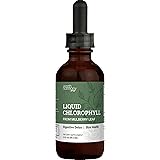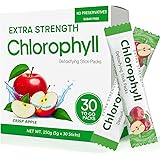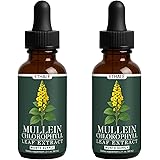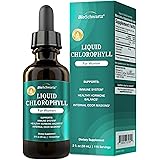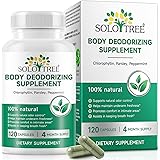Life in the modern world often feels like a constant juggle, leaving many of us feeling overwhelmed and stretched thin. This persistent pressure can elevate our body’s primary stress hormone, cortisol, which has significant impacts on overall well-being. While the video above succinctly introduces several key food groups that can help lower cortisol, understanding the deeper mechanisms behind these dietary choices offers even greater empowerment.
Sustained high cortisol levels are not just about feeling stressed; they can contribute to various health challenges over time. Think of cortisol as your body’s alarm system; it is vital for emergencies, providing a quick burst of energy and heightened awareness. However, if this alarm system is always blaring, it begins to wear down essential bodily functions. Fortunately, incorporating specific nutrients and food types into your daily meals can act as a powerful countermeasure, helping your system find its balance again.
Understanding Cortisol and Its Impact on Your Body
Cortisol, produced by the adrenal glands, is a crucial component of your body’s “fight or flight” response. It manages stress by increasing blood sugar, suppressing non-essential functions, and modulating your immune system. While beneficial in short bursts, chronic elevation of this hormone can lead to weight gain, sleep disturbances, impaired immune function, and even mood disorders. Effectively managing your cortisol levels is therefore fundamental for maintaining long-term health and vitality.
Imagine your body as a finely tuned orchestra, with cortisol acting as the conductor for its stress response. When the conductor demands an intense, loud performance consistently, the musicians eventually become exhausted. Dietary interventions offer a gentle yet effective way to help the conductor signal a more harmonious and calming rhythm. By consciously choosing what we eat, we provide the body with tools to better regulate its stress responses and promote a sense of calm.
Magnesium-Rich Foods: Your Body’s Natural Calming Agent
As highlighted in the video, magnesium is an indispensable mineral known for its role in hundreds of biochemical reactions. It acts like a natural relaxant for the nervous system, helping to calm brain activity and muscle tension. When magnesium levels are adequate, your body is better equipped to handle stress, potentially assisting in the process of how to reduce cortisol effectively. This mineral supports neurotransmitter function, which includes the regulation of sleep and mood.
Consider magnesium as the dimmer switch for your nervous system’s internal light; it can gently soften the intensity when stress feels too bright. Foods like avocados, bananas, dark chocolate, and leafy greens such as broccoli and spinach are exceptional sources of this vital nutrient. Ensuring a consistent intake of these delicious options helps to support a more relaxed state, contributing significantly to overall stress management. Many people find that increasing their magnesium intake helps improve sleep quality, which further aids in cortisol regulation.
Boosting Your Magnesium Intake for Stress Management
Integrating more magnesium into your diet is simpler than you might think and brings broad benefits beyond just lowering cortisol. A daily handful of almonds or a square of high-quality dark chocolate can make a difference. Incorporating a spinach salad or a side of broccoli with dinner also boosts your intake considerably. These small, consistent choices build up to a robust defense against the physiological impacts of stress.
Additionally, magnesium plays a role in energy production, preventing the fatigue that often accompanies chronic stress. While the video specifically mentioned a few items, other excellent sources include nuts, seeds, and legumes. Ensuring a varied diet rich in these foods provides a comprehensive approach to nutritional well-being and stress resilience. Prioritizing magnesium in your meals is a proactive step towards a calmer, more balanced life.
Omega-3 Fatty Acids: The Anti-Inflammatory Peacekeepers
The video correctly identifies omega-3 fatty acids as another crucial food group for stress reduction. These essential fats are celebrated for their potent anti-inflammatory properties, which are vital for maintaining cellular health. Chronic inflammation within the body can directly influence cortisol production, often pushing it higher. Therefore, consuming adequate omega-3s helps to mitigate this inflammatory response, aiding in the effort to reduce cortisol.
Think of omega-3s as skilled peacekeepers within your body, calming down the cellular skirmishes that lead to inflammation. They are particularly beneficial for brain health, supporting neurotransmitter function and promoting better mood regulation. Fish, such as salmon and mackerel, are renowned for their high omega-3 content, but plant-based sources are equally powerful. Chia seeds, flax seeds, and walnuts are fantastic alternatives for those following vegetarian or vegan diets.
Integrating Omega-3s for Enhanced Well-being
Making omega-3-rich foods a regular part of your diet provides a powerful tool for stress management and cognitive function. A few servings of fatty fish per week can significantly contribute to a healthier inflammatory profile. For plant-based options, sprinkling chia or flax seeds into smoothies, oatmeal, or salads is an easy way to boost your intake. Walnuts make an excellent snack, providing both healthy fats and a satisfying crunch.
The beneficial effects of omega-3s extend beyond inflammation, impacting the structure and function of brain cells. This support contributes to improved mental clarity and reduced feelings of anxiety, further assisting your body in handling stress more effectively. By choosing these healthful fats, you are actively investing in both your physical and mental resilience. This dietary approach provides another layer of defense against elevated cortisol levels.
Gut-Friendly Foods: Nurturing Your “Second Brain”
Finally, the video emphasizes the importance of gut-friendly foods, a category crucial for overall health and stress regulation. Your gut microbiome, often called your “second brain,” is a vast ecosystem of bacteria that profoundly influences mood, immunity, and even your stress response. A healthy, diverse gut flora can produce neurotransmitters like serotonin, which contribute to feelings of well-being and calmness, thus helping to lower cortisol.
Imagine your gut as a bustling garden; a diverse and healthy array of plants (bacteria) thrives when properly nurtured. When this garden is flourishing, it creates a conducive environment for mental and physical health. Probiotic-rich foods, such as natural Greek yogurt, kombucha, and sauerkraut, introduce beneficial bacteria to your gut, supporting this delicate balance. These fermented foods are excellent at enhancing the diversity and function of your gut microbiome.
Supporting Gut Health for Stress Reduction
Incorporating probiotic foods into your daily routine is an effective strategy for nurturing your gut and, by extension, your brain. A bowl of natural Greek yogurt for breakfast or a glass of kombucha can be refreshing additions. Sauerkraut, a fermented cabbage dish, offers a tangy and beneficial side to many meals. These foods not only introduce good bacteria but also aid in digestion and nutrient absorption, which indirectly supports stress resilience.
The gut-brain axis is a two-way communication highway, meaning a healthy gut can send positive signals to the brain, influencing mood and cognitive function. Conversely, stress can negatively impact gut health, creating a cycle that is hard to break. By consuming gut-friendly foods, you are actively working to disrupt this negative cycle, promoting a more balanced and resilient state. This approach is a cornerstone of holistic stress management and helps to keep those unwanted cortisol levels in check.



